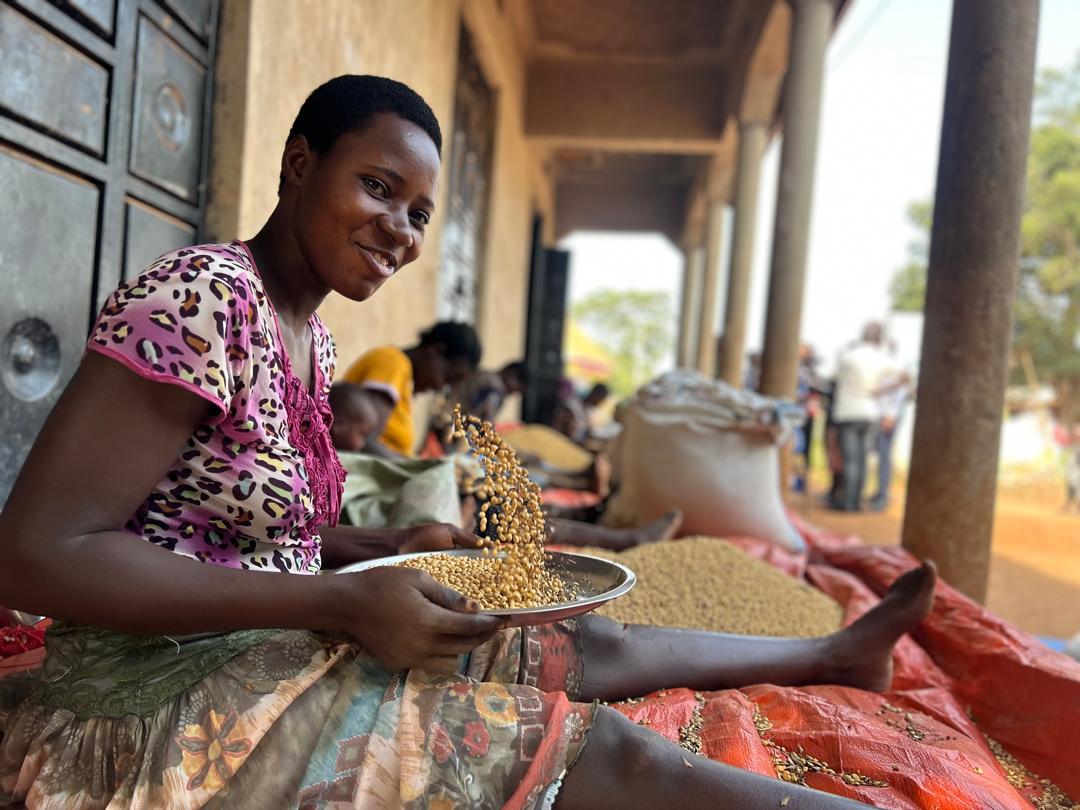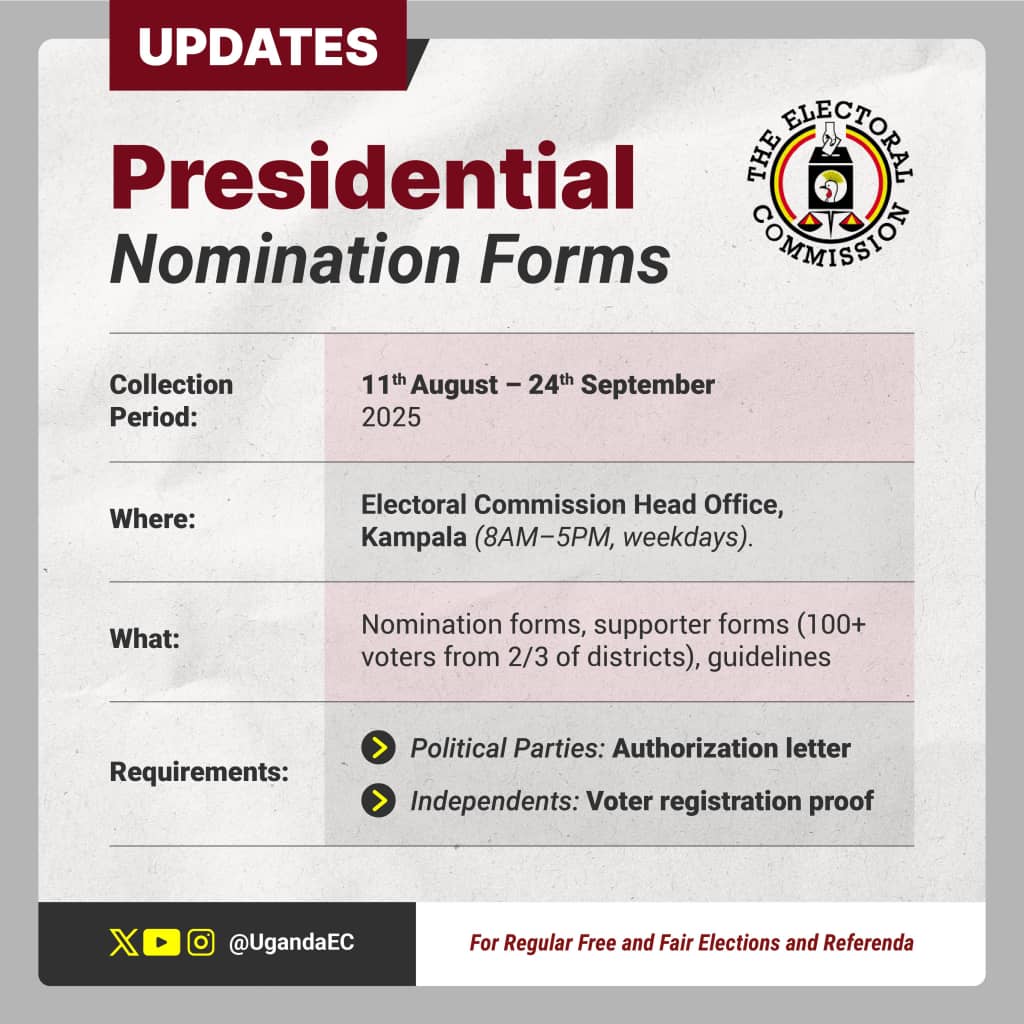Uganda’s 2026 presidential race is already shaping up to be one of the most crowded in recent history, with over 100 individuals, among them long-serving President Yoweri Museveni and Forum for Democratic Change (FDC) Secretary General Nathan Nandala Mafabi, having so far picked up nomination forms from the Independent Electoral Commission (IEC).
The form-picking process, a prerequisite for official nomination, opened recently at the IEC and is set to culminate with candidates’ nomination on September 23 and 24, 2025.
Each aspirant must gather at least 100 signatures from registered voters in all of Uganda’s 98 districts, a logistical and political test that filters serious contenders from fringe hopefuls.
President Museveni, now in power for four decades, is positioning himself for a seventh term in office.
His forms were picked on his behalf by National Resistance Movement (NRM) Secretary General Richard Todwong and the party’s First National Vice Chairperson, Al-Hajj Moses Kigongo, underscoring the president’s enduring grip on Uganda’s ruling establishment.
If successfully nominated, Museveni will once again lead the NRM into battle under the shadow of mounting internal and external pressures, from succession debates within the party to opposition forces still trying to dismantle his political stronghold.
Among the notable opposition figures throwing their hats into the ring is Mafabi, a key player in the FDC and former Leader of Opposition in Parliament.
His candidacy signals a new chapter for the FDC, which has contested every election since the return of multiparty politics in 2006.
Though the party has never unseated Museveni, it has remained a consistent force, most notably through Dr. Kizza Besigye, who challenged Museveni four times, and Patrick Amuriat Oboi, the party’s 2021 flag bearer.
Mafabi’s forms were collected by Soroti City West MP Jonathan Ebwalud.
The field so far is a mosaic of veterans, newcomers, and perennial aspirants.

Among them are Mubarak Munyagwa of the Common Man’s Party (CMP), well-known independent candidate John Katumba (popularly known as Katumba Oyee), and Elton Mabirizi, each symbolic of Uganda’s growing pool of alternative political voices, though lacking the nationwide support or structure to mount a serious challenge.
Notably, five women have also picked nomination forms, continuing a trend of increasing female participation in high-stakes national politics, though none has yet emerged as a major contender.
However, some major players have yet to enter the fray. The National Unity Platform (NUP), Uganda’s main opposition party in the last election, has not picked forms, nor has the People’s Front for Transition (PFT), the FDC breakaway faction led by Besigye.
Their absence, for now, raises questions about strategy, timing, or internal recalibration.
According to IEC spokesperson Julius Mucunguzi, the sheer number of aspirants is not unexpected in a democracy, but few are likely to make it past the signature requirement.
This is the beginning of a rigorous process.
The public must watch closely who can meet the constitutional thresholds.
As the deadline draws near, political watchers will be focusing not just on who returns the forms, but who can translate paperwork into genuine national traction.
For now, the race is on, and Uganda appears poised for another high-stakes electoral season.


















